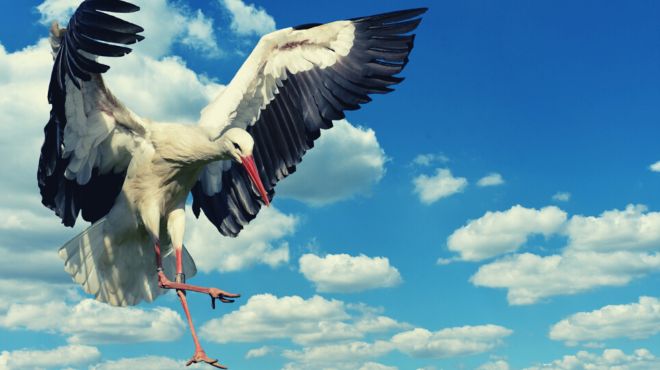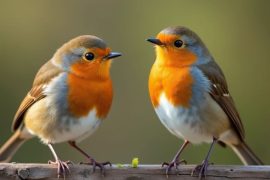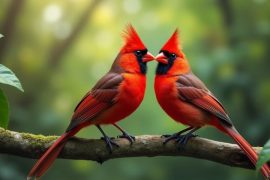The stork symbolizes birth, nurturing, and transition. Its presence signifies new beginnings and carrying hopes. As a totem, it encourages embracing change, family bonds, and embracing life’s transformative phases.
The stork is a large migratory bird most famous for its folkloric association with carrying babies and newborn deliveries. But beyond this familiar image, the stork has held rich symbolic meaning across cultures and spiritual traditions throughout history.
Let’s explore the deeper spiritual wisdom and lessons encoded within stork symbolism, totem powers, and dream messages. By understanding the stork as a spirit animal, we gain insight into fertility, rebirth, focus, equilibrium and our own life path.
Symbolic Meanings of the Stork
Across many cultures, the stork represents:
- Fertility, childbirth and new beginnings – Their folkloric role delivering babies imbues storks with the energy of fertility, birth, and fresh starts. White storks are loyal mates, often returning to the same nesting site each year. This loyalty and rebirth cycle amplifies their connection to fertility.
- Motherhood and parental care – White storks exhibit excellent parenting skills, protecting and teaching their young – earning them the mantle of maternal symbols. Stork couples share parenting duties, with males also incubating eggs and feeding hatchlings.
- Balance, harmony and equilibrium – Storks stand and rest on one leg, centered and peaceful, representing stability amidst change. During migration they fly thousands of miles, effortlessly riding thermals and air currents while maintaining grace and poise. This reflects the equilibrium they bring.
- Transition, change and transformation – Their migratory nature reflects the soul’s journey through cycles of life, death and rebirth. Stork’s seasonal comings and goings teach us the inevitability of change.
- Migration, travel and pilgrimage – Storks fly vast distances across continents, carrying wisdom and perspective from their long treks. Their return signals a welcoming of broader vistas and perspectives gained through travel.
- Vigilance, focus and determination – Storks are focused hunters, concentrated wholly on their tasks. Those with this totem share the stork’s powerful resolve and persistence while hunting prey.
- Good luck and fortune – In many cultures, stork sightings are welcome omens of pending luck, positive fate or happy tidings. From Germany to China, storks portend prosperity.
- Springtime and renewal – Storks return from migration in spring, bringing renewal energy after winter’s hibernation. Their arrival stirs new growth and rebirth.
- Loyalty and lifetime mating – Stork couples can remain faithfully paired for years, even decades. Their loyalty and dedication symbolizes devotion in relationships.
- Independence – Storks migrate and hunt alone but unite as loyal couples during breeding seasons. This symbolizes autonomy balanced with partnership.
Clearly, the symbolic meanings of the stork span many interrelated themes, painting a picture of great spiritual depth and nuance.
Stork Totem Animal
For those who share a bond with the stork as their totem guide or spirit animal, the stork imbues their inner landscape with:
- Grace, elegance and poise – Storks are known for their long-legged, poised and peaceful presence. Those with stork totem reflect this elegance in their carriage and movement.
- Patience, dedication and familial bonds – They demonstrate steadfast patience rearing young, bonding for life with their mates. Stork totem gifts perseverance in nurturing projects and relationships requiring long-term commitment.
- Focused intentions and determination – Storks fiercely concentrate their energy on their goals. Those with this totem share the stork’s resolve and persistent focus on intentions.
- Transformative life path – The stork totem’s migratory nature reflects a life path of travel, evolution, and navigating cycles of change. Stork medicine facilitates soulful growth during transitions.
- Powers of fertility and harmony – Stork totem grants the gifts of fertility – in creativity and childbirth – and harmonious relationships. Storks balance independence and partnership.
- Access to stork medicine through animal Spirit – By calling on the stork’s energy, one brings through stork powers of rebirth, equilibrium and family. Meditating on stork symbolism allows integration of stork attributes.
Connecting with stork animal spirit through meditation or pilgrimage allows one to harness this totem’s gifts of focus, balance, and peaceful poise amidst life’s transitions.
Stork Dreams
When the stork graces our dreams and visions, it bears profound messages.
- Seeing a stork signals pending news regarding pregnancy or childbirth, portending positive changes drawing near. Stork dream visits may precede conception or mark the dawn of a new creative endeavor about to manifest.
- A stork delivering a baby heralds the arrival of a new phase – perhaps a fresh creative endeavor or life transition requiring commitment. Dream storks bearing gifts inspire us to prepare for new responsibilities.
- Helping or assisting a stork reflects a need to concentrate energy and focus intentions towards commitments requiring dedication. Are we being called to step up and deliver using our gifts?
- Witnessing a stork flying overhead inspires one to rise above challenges and cultivate resilience during times of difficulty and transition. Stork flight elevates perspective.
- An injured or dying stork forewarns of potential miscarriage or loss, signaling a need to restore equilibrium and care for health and family. This powerful omen calls us to heal imbalances threatening stability.
Dreams of stork activity ask us to reflect on where new focus and commitment is needed to manifest positive change in our lives. The stork dreamtime messenger arrives when we must direct focus towards birthing creative potential.
Importance of the Stork Across Cultures
The stork holds symbolic meaning in diverse global mythologies and belief systems:
- Greek and Roman myths depict storks as loyal and familial, honored for caring for parents in old age. The stork was associated with the goddess Aphrodite and fidelity in marriage.
- Christian iconography links storks with the Virgin Mary – often shown with stork imagery representing maternal devotion. Storks were believed to care for their aging parents, symbolizing virtue.
- In Eastern religions like Taoism, Confucianism and Shinto, the stork represents good luck, loyalty to family, and rebirth. Chinese legend claims storks delivered babies by retrieving infants from lotus ponds.
- Shamanic cultures and Native American tribes recognize storks as spirit guides supporting transitions, childbirth and family bonds through their migratory wisdom. Some tribes viewed storks as weather prophets.
- In ancient Egypt, stork hieroglyphs symbolized the ba – representing the soul’s ability to move between earthly and spiritual realms.
Clearly the stork holds profound meaning across human cultures and faiths, transcending geographic boundaries.
The Stork in Mythology and Folklore
The stork appears in myths, fables and folklore around the world:
- A Sanskrit fable tells of a rishi saving a stork from a snake. In return, the grateful stork tries to protect the rishi from danger to repay the karmic debt.
- Greek legend claims that storks found babies in caves or delivered them to childless couples. This birthed the myth of storks bearing children.
- European folklore portrays the stork as the “Solomon’s bird”, renowned for its wisdom and prudence.
- In Germanic tradition, storks were believed to have powers over fire. The story goes that a stork placed a feather on top of a house to prevent it from burning.
- A famous Brothers Grimm fairy tale tells of kind-hearted children who transformed into storks, rewarding their compassion.
- Native American legends depict storks as sun-bringers. One tale describes storks freeing the sun from its underground cave through focused teamwork.
- The Yoruba orishas of Africa recognize Olokun as the stork spirit, as a precocious child full of curiosity – reflecting the stork’s inquisitive nature.
These global myths capture the stork’s universal symbolic potency across human culture.
Symbolic Stork Interpretations
Spiritual thinkers across history have offered symbolic insights into stork meaning:
- The physiologus, an early Christian text, viewed the stork as a model parent, dutifully caring for young. This exemplified virtue to early Christian communities.
- Albertus Magnus, a medieval philosopher, believed storks represented the four cardinal virtues – prudence, temperance, fortitude and justice. Their character was aspirational.
- The 17th century French writer Jean de La Fontaine penned a famous fable about the stork. It depicted how acts of kindness are often reciprocated – underscoring the stork’s gift-giving nature.
- Carl Jung, the psychologist, saw stork symbolism reflecting the self’s ability to intuitively navigate between dimensions and realities. Their migratory patterns mirrored the unconscious.
- Far Eastern traditions associate storks with immortality, as these long-lived birds were observed to live up to 25 years in the wild. They cheated death through rebirth.
These interpretations reveal the stork as a global archetypal figure reflecting virtues, ethics, intuition, and timelessness.
Stork Symbols in Art and Culture
The stork has influenced art, literature and pop culture through the ages:
- Stork imagery commonly appears in Christian religious artwork – in paintings, architecture and stained glass windows of churches.
- Aesop’s fables feature stork characters, as do fairy tales by Hans Christian Anderson and the Brothers Grimm.
- Ancient Egyptian hieroglyphs use stork symbols to represent the soul, breath and the concept of blessedness.
- Noah’s ark depictions in medieval manuscripts and church mosaics frequently show stork pairs among the animals rescued.
- Marvel’s Scarlet Witch heroine has a stork emblem on her costume, reflecting magic, fertility and flight.
- The Warner Bros stork mascot – Schlesinger – graced 1930s animation logos and cartoon openings.
- Stork whiskey liquor uses stork imagery in their branding and marketing, linking storks to celebration.
Clearly, the stork has woven itself into our stories, artistic works and popular media as a reminder of its symbolic potency.
Conclusion
In summary, the stork’s spiritual wisdom emphasizes themes of fertility, harmony, focus, rebirth and poise through life’s changes and milestones.
Across cultures, the stork embodies the energy of childbirth and springtime renewal, while exemplifying parental devotion and grace.
As a spirit animal, the stork grants magical gifts of intention, transformation, and peaceful equilibrium to those who call upon its totem guidance.
By understanding the rich symbolism of this long-legged migratory bird, we gain a more nuanced appreciation of the stork’s significance as a spirit messenger supporting our journey.



